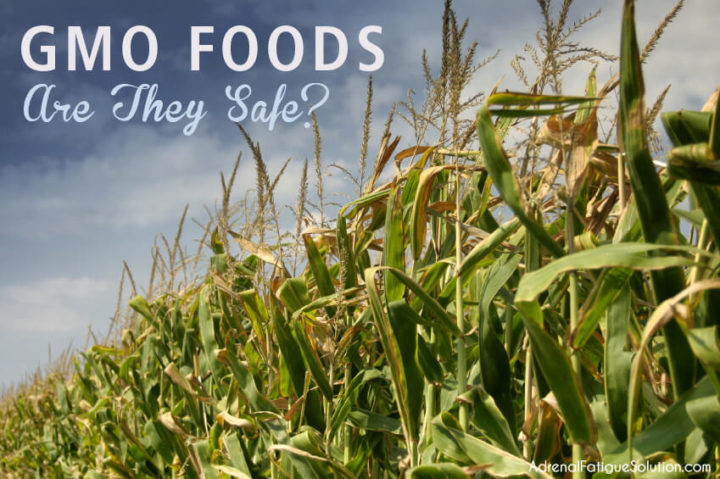The issue and use of genetically modified foods is one that, to date, has been treated rather differently on either side of the Atlantic Ocean.
In the United States, GMO foods have very much become part of the mainstream consumer market, with experts claiming that up to seventy percent of products found on U.S. supermarket shelves contain genetically modified ingredients. The most common foods identified in this bracket are those that contain field corn or high fructose corn syrup, including a large number of breakfast cereals, soda drinks and general snack foods.
Across the pond in Europe, however, the overwhelming consensus is very much one of preferring organic produce over genetically modified goods. The EU holds the belief that the health and environmental risks associated with GMO outweigh the potential benefits. So with the USA and other countries including Canada, China, Australia and Mexico championing genetic modification and the EU reluctant to engage in the process, which verdict is the correct one? Let’s weigh up the arguments.
The Benefits
- The US government maintains that genetically modified foods are completely safe and resist disease much better than non-modified crops. This strength and resistance means that GMOs can provide much needed aid to nations around the world that are plagued with famine and starving populations. The ability to grow extra resistant crops in volatile natural environments is a great help to the third world plight.
- As well as disease resistance, genetically modified foods tend to have a much greater resistance to pest damage and a higher tolerance to drought weather conditions. Again these growing factors make GMOs particularly helpful in disadvantaged areas throughout the world.
- Some experts claim that GMOs can positively affect the nutritional value of foods. For example, by inserting certain genes in to a crop of rice we can increase its Vitamin A content, a hugely beneficial improvement to a world of which fifty percent of the global population use rice a main dietary staple.
- Scientists are using genetic modification to achieve clever breakthroughs in the area of human medicine and vaccine. Plants are being used to engineer and produce proteins, vaccines and other pharmaceutical products in a process known as ‘pharming’.
- The expertly engineered technique of growing genetically modified crops allows for more food from much less ground than had previously been required and used. This increased productivity means that farmers in the centuries to come will not have to engage as much environment changing land cultivation as has occurred in the recent and distant past.
The Risks
- Around 95% of studies into GMO foods are funded by industry groups. So can they really be impartial? We have already seen in other areas of scientific research that this can lead to significant bias. Governments are making decisions based on these studies but are they reliable?
- Some research projects have demonstrated that regular consumption of genetically modified foods has the potential to play a significant role in problems like infertility, obesity, allergies, diabetes and autoimmune disease. For example, an Australian study on pigs found that a long term GMO diet led to much higher rates of stomach inflammation.
- Scientists have highlighted their fear of ‘gene escape’, which is a situation in which a specific gene may transfer from one crop to another and begin to mutate to negative effect. For example, if an herbicide-resistant gene came in to contact with a species of unwanted weed, thus creating a plant that is extremely difficult to destroy.
- The uniformity of a new breed of GMO foods could potentially see the disappearance of localized varieties of crops that have evolved to thrive in their specific environments, such as local varieties that have adapted to cope with particular stresses.
- Authorization has become a key problem in the GMO world, with a number of unauthorized genetically modified foods entering in to the food chain without the sufficient degrees of testing having taken place. Occasion like this have lead to an air of uncertainty with regards to the health risks of such products.
- The reason for genetic modification is often to allow farmers to use stronger pesticides without damaging the plant. More pesticide use means more pesticide residue entering the food supply.
So, with strong cases for and against proposed by both sides of the argument, what is the best course of action to take when it comes to genetically modified foods?
To date, there are many more studies that support GM food than studies that raise concerns about it. However, when we factor in the different funding levels, and the potential for bias in many of these studies, the picture starts to look a little different.
There have certainly been enough concerns raised about GMOs for me to avoid them entirely. They may eventually help us to lower poverty rates and improve nutrition in disadvantaged areas, but for my own diet I believe them still to be too risky.
More specifically to those of you suffering from Adrenal Fatigue, these studies have raised concerns about things like inflammation and dysregulation of the immune system. For anyone who has a weakened immune system and is experiencing regular infections (like many Adrenal Fatigue sufferers), this is very troubling. Wherever possible, I recommend eating a diet full of whole foods and avoiding GMOs entirely.




Leave a Reply